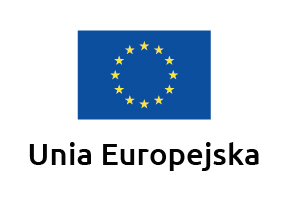Recommendations for women undergoing treatment with assisted reproductive technology (insemination, ivf, icsi)
Dietary guidelines:
- Take a folic acid preparation (Pregna Plus, Feminatal Metafolin 800) 1 tbl/day preferably for 3 months before the planned treatment,
- Follow a protein-rich diet,
- Avoid spicy foods that irritate the intestines,
- Do not use laxatives, in case of constipation we recommend glycerine suppositories, flaxseed, as a last resort Lactulose syrup,
- Drink plenty (minimum 1.5-2 litres of water/day).
Other recommendations:
- In the case of in vitro fertilisation treatment, sexual abstinence should be maintained until the result of the cycle is known;
- It is advisable to limit physical exercise during the first 3 days after the transfer; in the following days, please maintain your typical daily activity; if you practice sports, it is recommended to limit physical exercise to a minimum;
- Refrain from using sauna or swimming pool;
- Limit your exposure to stress;
- Continue taking the progesterone preparation as prescribed by your doctor;
- Perform a pregnancy test on day 14 after embryo transfer; serum betaHCG determination can be performed on day 12 after embryo transfer (on day 3) or on day 10 after blastocyst transfer – please text or email the attending physician with the result;
- In case of a doubtful result, repeat the serum beta HCG determination after 2 days;
- Spotting may occur between the transfer and the time of the pregnancy test – in this case, please continue taking your medication and perform the pregnancy test at the scheduled time;
- In case of a positive pregnancy test, please continue taking the medication – it is up to the doctor in charge of the patient to decide whether to discontinue the medication, but not before the 8th week of pregnancy; in justified cases, the medication may be continued during the first and second trimester of pregnancy;
- The first appointment to confirm the normal development of the pregnancy is expected 2 weeks after the positive pregnancy test result is obtained;
- Take vit. D3 between September and June at a dose of 2000 IU/d, preferably under control of serum vit. D3 levels.
List of tests for assisted reproduction technologies (valid for 6 months)
Germ cell donor (male partner)
- Anti-HIV 1/2
- HBsAg
- Anti-HBc
- Anti HCV-Ab
- VDRL
In special medical cases, it is also advisable to carry out the following tests:
- Pc HTLV-1
- RhD antigen
- Malaria
- CMV
- T. cruzi
Germ cell and embryo recipient (female partner)
- Anti-HIV 1/2
- HBsAg
- Anti-HBc
- Anti HCV-Ab
- VDRL
- Toxoplasmosis IgG and IgM
- Chlamydia (DNA; PCR) – cervical smear
- Cytology (valid for 12 months)
- Vaginal cleanliness (biocenosis)
- Rubella IgG
In special medical cases, it is also advisable to carry out the following tests:
- Pc HTLV-1
- RhD antigen
- Malaria
- CMV
- T. cruzi
The blood group of the woman and man is also required for the IVF procedure.
Procedures performed under general anaesthesia
After any procedure performed under general anaesthesia (e.g. oocyte retrieval in an IVF programme, testicular or epididymal biopsy, operative hysteroscopy), the patient must be monitored to detect any side effects of the anaesthesia.
Immediately after the procedure, the female patient is taken to the post-operative room (so-called intensive monitoring), where she is connected to a pulse oximeter or cardiomonitor and rests in a supine position.
Usually, after a period of 45-60 minutes (although this time may be extended individually), an attempt at uprighting is made to see if dizziness or vomiting occurs.
When there are no negative effects, the patient spends another 20-30 minutes in a sitting position, during which time there should be no side effects. This is a standard anaesthetic procedure, allowing controlled full recovery of the patient to function safely after the procedure.
List of tests required for procedures under general anaesthesia:
- blood count
- APTT
- PT
- sodium
- potassium



